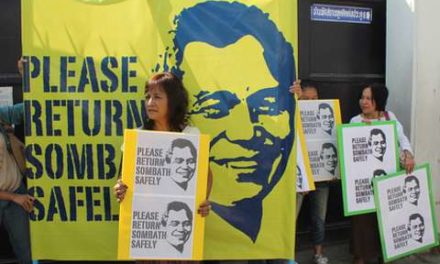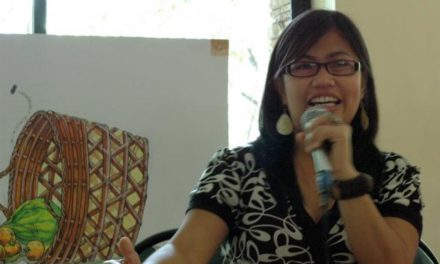They could have just arrested Jiten Yumnam at his home. But a team of Manipur Police Commandos chose the Tulihal Airport in Imphal to stage a dramatic arrest when the 33 year-old environmental activist was preparing to board the Kingfisher flight to Delhi. It was as if they were just waiting for him to venture out of Imphal to legitimise their arrest, to imply that Jiten was trying to flee. Jiten had not been in hiding, nor was he on the run. In fact, for several months he had been busy with the treatment of his aunt who was diagnosed with lung cancer. Just the day before he was arrested he was busy with religious ceremonies to mark and condole her passing.
When I read of his arrest in the local dailies, I was certain that it must have been a mistake. But when I saw his medical report, dated 15th September 2009, I was shocked to know that he has been a victim of torture and the medical test was actually for “pain in the private parts due to electric shock”. What could have prompted the Manipur Police Commandos to torture a fine gentleman, an upcoming intellectual from the northeast, who was sincerely concerned about the future of the northeast? According to the reports from the dailies, he has been booked under the Official Secrets Act and section 121, 121 (A) of the Indian Penal Code and section 16, 18, 39 of the Unlawful Activities (Prevention) Act.
One autumn morning in 2008, I visited Jiten Yumnam in Imphal at his residence in Mayai Koibi. We sat outside near the shed where a huge traditional loom was kept and drank red tea. I remember vividly some of the things we discussed. At the heart of our discussion was the recurrent theme of peace and environment. With a smile on his face, his grimly-framed spectacles belying a good natured soul, we looked up at the gathering clouds and discussed the impacts of climate change and how beautiful Loktak Lake was and the variety of Manipuri dances and the latest Manipuri film stars.
The Northeast of India as a post colonial construct has passed through many turbulent phases in its short contestation with the shackles of democratic apologetics. The many paradoxes that co-exist have nevertheless been embraced in its entirety and the political contestations of identity and space that tears through the rubric of northeast and challenges the extremes created by the colonial masters have actually defined crime and democracy in the northeast. What is true of Manipur was true of Nagaland; but more importantly what is true of Manipur can be true of Meghalaya or Sikkim or for that matter, any of the eight states that now constitute the northeast. Notions of the mainstream and the far-east have been juggled across to imply attention and non-attention, thus vulgarizing every aspect of the northeast. When it comes to the cultures of the many peoples of the northeast, it is cast in the light of the exotic. When it comes to the situation, both economic and political, it is a turbulent place, known for the violence and militarization. It is as if the northeast comprises of people living under already well-appraised and arrested cultures.
Everything enshrined under the constitution of India seems ironical when we are faced with daily doses of arrests and fake encounters. When the northeast is now viewed as the site of all major developmental policies and when the abundant natural resources of the northeast are up for grabs by the highest bidders, one is made to stand still and think: what is it that they don’t want us to do? When we voice our concerns as duly expected of any citizen of a free country is entitled to do so, and create a space for critical participation and strengthen democracy, we are prevented with extreme measures. Things have come to such a pitiable pass in the northeast.
Right to participate in any debate or policy discussion having the possibility of impacting the future of the northeast is seen as a fundamental right. There may be agreements or disagreements depending on the various perceptions that exists. However differences of opinion can not necessarily be construed as “waging war against the Indian State”. This leaves us with the tinge of fear, the fear to speak out on any issue that a citizen is entitled to under the constitution of India. Or even the rights enshrined in the Universal declaration of human rights. The arbitrary arrests and detention of Jiten Yumnam and seven other civil society leaders in Manipur—on the same day as Jiten—was definitely a grave human rights violation. Torturing them is certainly a very serious crime in the eyes of the world. The implications are many and the message being sent to the youth of the northeast is not healthy at all. Is it a cover up for the kind of fake-encounters that have been staged in Manipur today, one which even the Prime Minister of India condemned?
The vibrancy of the youth in the northeast in every sphere of activity is today seen as a positive sign of progress and development. The concerns for the future of the northeast, especially in the field of environment, peace, education, healthcare, human rights and development are not only the prerogative of the politicians or the bureaucrats but for the youth as well. To this end, the energy of the youth is being directed towards solution creation and not conflict driven. Every young person in the northeast, having gone through scales of violence in the past, is yearning for justice and peace. Every voice heard today is a cry for that and Jiten’s voice is one such voice.
Hence when there is less participation of the people of the northeast on policy documents such as the Northeast Vision 2020 or the Look East Policy, there is need for demanding higher participation. What people like Jiten and his generation of peace activist wants from the governments in the states of northeast are universal issues like transparency, anti-corruption, peace, good healthcare, development, basic education and most importantly, basic human rights. This feeling runs through the leaders of the ruling party in every state of the northeast and yet the irony is that, while some are being arrested for voicing concerns, the silent minority are sitting pretty as if they are above all censure. This is the travesty of justice being played out in the northeast of India.
Mmhonlümo Kikon works with indigenous people of the Northeast to strengthen their personal and environmental rights. He is based in Kohima.
Mmhonlümo Kikon
Kohima, Nagaland
Email: [email protected]








